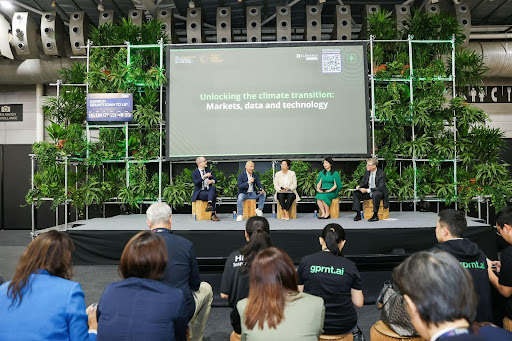
Fintech as an industry is undergoing seismic changes. ESG integration is no longer just about corporate responsibility; it's a strategic imperative for many in the Fintech industry. Historically, finance and sustainability ran on parallel tracks. In 1987, the World Commission on Environment and Development released the Brundtland Report. This seminal publication introduced the concept of sustainable development and connected social equity economic growth with environmental challenges.
The report was a pivotal moment that ushered in the beginning of an integrative approach to economic development that prioritizes fairness, social justice, and sustainability. It acknowledged the limitations of GDP as the sole indicator of progress, paving the way for the ESG model. Today, ESG, especially in Fintech, is grounded in innovation and metrics to evaluate results. These criteria are essential for monitoring and reducing risks that could hinder sustainable corporate growth. They also represent a significant leap forward in evaluating economic success within the ESG framework.
This year's Singapore Fintech Festival placed a strong emphasis on ESG, and a variety of viewpoints enriched the discussions. Global policymakers, the private sector, and investors gathered to explore the concept of digitizing inclusion, leading to insightful and thought-provoking commentaries.
Jaleh Daie, Managing Partner at Aurora Equity, was candid about the state of ESG at the moment. She said, "It's true that the ESG is currently in a struggling situation...part of it is the hypocrisy of greenwashing. Greenwashing is getting in the way of innovation. So [we] want to really focus on innovation and move things forward."
Caveats aside, there were also case studies of progress. During the Unlocking the climate transition: Markets, data, and Technology session, executives from the fintech industry, government, and NGOs shared their insights. Leiming Chen, Chief Sustainability Officer of Ant International and senior Vice President at Ant Group presented his approach toward promoting sustainability from a private sector perspective. He outlined three key areas of focus. Firstly, strive to foster widespread involvement in eco-friendly initiatives through active engagement of Ant's large user base; secondly, dedicate efforts to enhancing access to green financing for SMEs and micro enterprises; lastly, prioritize technological innovation in the pursuit of sustainable practices.
Beyond the private sector, governments worldwide are also demanding commitment to catalyze sustainable, inclusive growth to counter the negative externalities of change. But it has also become quite clear that some countries are more able to afford it than others to combine carbonization and sustainability goals with economic growth and energy access. The logic that "Just do it because it's good" needs to be supported by a commercial ROI that requires market discipline and collaboration all around. It's ultimately a matter of "how," not "why." Companies are getting ahead of the issues, proactively preparing for increasing regulatory scrutiny, and creating long-term resilience in the face of potential economic downturns and environmental crises. ESG is about playing the long game and having the right mindset, and that is the sentiment echoed by many at SFF.
Leiming also highlighted the importance of mindset, stating, "When we set our business strategy, we set it in conjunction with the formulation of our sustainability strategy."
The long-term mindset, combined with a social impact mission, has the potential to achieve remarkable outcomes. Ant Forest, a green initiative encouraging the public to take sustainable actions in everyday life, was introduced in 2016. Translating green actions into social impact has inspired similar initiatives across Southeast Asia, such as GCash Forest in the Philippines. Through its app, GCash encourages users to engage in eco-friendly activities and foster grassroots environmental efforts. With mobile usage prevalent among young adults concerned about climate change, models like Ant Forest and GCash could amplify environmental engagement on a broader scale and pave a path forward for collaborative, tech-enabled environmental solutions.
The key lies in blending corporate sustainability, commercial value, and social value at scale. ESG remains relevant and vital, and Fintech plays a pivotal role in amplifying this approach and incorporating inclusive digitalization into the conversation. It has the potential to scale efforts at a level never seen before. For example, over 650 million users participated in green and low-carbon activities through Alipay Ant Forest. An actual tree is planted when this virtual energy "grows" a digital tree. Alipay helps local farmers participate in the green economy; they generate income by planting trees in their communities. All this allows users to adopt new habits and change their mindset, and ultimately, this positive loop creates an ecosystem of gradual and concrete change. The virtuous cycle carries on.








